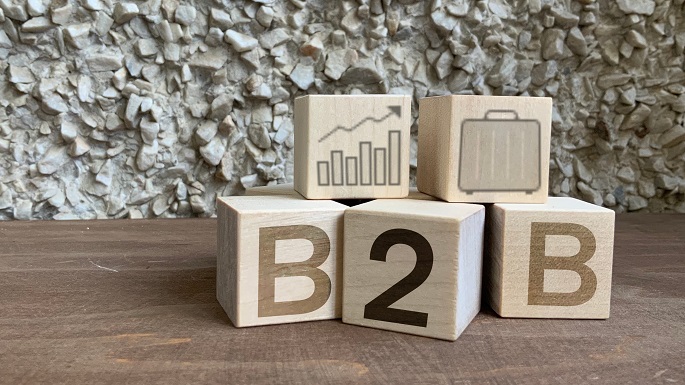Slowly But Surely, B2B Startups Digitize the Manufacturing Sector
The extent of the transformation of the supply chain industry from the perspective of Bababos, Imajin, and Wifkain
It is said that the digitalization of the manufacturing industry in Indonesia is not as fast as other sectors, for example finance, retail or transportation. This slow adoption is triggered by complex process chain factors, from production to distribution.
Survey McKinsey in 2020 found that only 21% of companies in Indonesia had adopted Industry 4.0, lower than other countries surveyed, namely the United States (53%), Singapore (50%), and Japan (40%).
Because of this layered process, digitizing manufacturing is considered to be more difficult and expensive. Not to mention concerns about the risk of failure. Industry players are also hesitant to allocate their budget for digitalization. Another factor is the lack of digital talent in the sector.
This low digitalization ratio is being exploited by a number of startup companies to be involved in manufacturing transformation in Indonesia. Is Bababoss, imaginationand Wifkain which seeks to simplify some business processes through a platform without eliminating the physical aspect of bringing manufacturing partners together with business people.
With the traction they have gained, third founder This article shares important notes regarding the dynamics of building a manufacturing supply chain platform. For information, Bababos and Imajin are platforms providing material supply chains, such as metal and plastic, while Wifkain is for textile raw materials.
Understand customer characteristics
Both Bababos, Imajin, and Wifkain developed platforms that bring together manufacturing partners in Small and Medium Industries (IKM) with business owners or brand. The user profile comes from medium to large scale companies to corporations.
Starting from there, they need to understand their users because the needs of the B2B segment are considered more complex, and sometimes require more intense and personal communication before deciding on a purchase. Unlike individual or retail customers.
With these characteristics, digitalization efforts cannot be implemented 100% online. "Profile customer Our B2B is enterprise. Difficult to acquire customer if pureonline. Retention [efforts] are also not complete online," said Wifkain Co-Founder and CEO Sara Sofyan.

From the perspective of Co-Founder and CEO Bababos Fajar Adiwidodo, the characteristics of B2C needs can change quickly - this could be driven by seasonal factors and price promotions. However, the execution process in the B2C market is simpler than B2B.
"Meanwhile, B2B needs will always remain the same; affordable prices, product quality, and on-time delivery. What we do is not transform what they want, but deliver what is needed--which is very complex. We have the ability to do [delivered] on time. Every improvement we make is immediate direct impact."
Digitize processes, retain physical aspects
Co-Founder and CEO of Imajin Chendy Jaya revealed that there are many process chains in manufacturing that are still done manually. For example, checking machines or production progress. This makes the flow of information fragmented, not through one pintu the same thing and have the potential for miscommunication.
Startups want to simplify this process by presenting a Dashboard on their platform, allowing manufacturing partners or business owners to monitor work progress, from processing time to delivery. For example, the Imajin Dashboard where vendors and customers can monitor changes in product size.

Meanwhile, Bababos highlighted digitalization in his platform's 'kitchen'. Not only does it bring together vendors and owners brand, they are currently developing it engine which allows users to get price recommendations. There is also feature development underwriting to collection pada credit engine. According to Fajar, these features will not be 'visible', but will be felt more experience user.
Even though some manufacturing processes have been digitized, Chendy revealed that physical aspects are still needed for the supply chain. One of which is quality control (QC) and quality assurance (QA), a procedure that is never overlooked in the development of a product.
"Model marketplace usually direct transactions. For us, this will be difficult to love quality assurance because customers are sometimes worried about their orders. So, we got involved in the middle to find [manufacturing partners], so we added it quality assurance. "So before sending it to customers, send it to Imajin first so that it meets standards," he said.
Wifkain also applies the same thing in supplying textile raw materials. Sara said that it has QC according to global standards. In fact, he said, there are several raw materials that must pass a more stringent level of checks to reach tolerance levels (rectification level). The claim is that Wifkain has rectification level 0,5% from the global average level of 3%. "We detect as early as possible so that the goods sent meet certain tolerance levels."
Regarding obstacles
Sara revealed that the pandemic has triggered a change in industry trends where fashion brand owners are now starting to shift to nearby/domestic manufacturing, including Indonesia. By producing to the nearest manufacturer, business people have clarity in terms of logistics.
More Coverage:
Even so, logistics remains an obstacle that is often faced in the supply chain, especially for the fashion industry which must quickly catch up with trends. The issues encountered are usually related to administration and documentation which results in late sample delivery. Wifkain is currently preparing the feature digital patterns so users can create their own patterns and reduce the use of raw materials.
"The next challenge is access to sharia financing. This industry is very capital intensive, and we have collaborated with banks and fintech so that brand can boost production. Well, Indonesia and Malaysia are our biggest markets, where the product is in demand modestwear (hijab) high. They strict to take conventional loans, while there is not much sharia financing here. "This means their production is not optimal," he explained.

Meanwhile, Bababos was reluctant to elaborate on the challenges of developing his business. He believes that digitalization is not just a matter of simplification, but is part of a process. Even though it has been digitized, the party is trying to present a process as similar as possible to what they usually do.
"With every change, we want to produce go into as large as possible and pain as small as possible. We ensure we have the right products and solutions, as well as the right market, resource and channel strategies. We want to consistently provide price, quality, delivery and transparency."
Sign up for our
newsletter
 Premium
Premium
